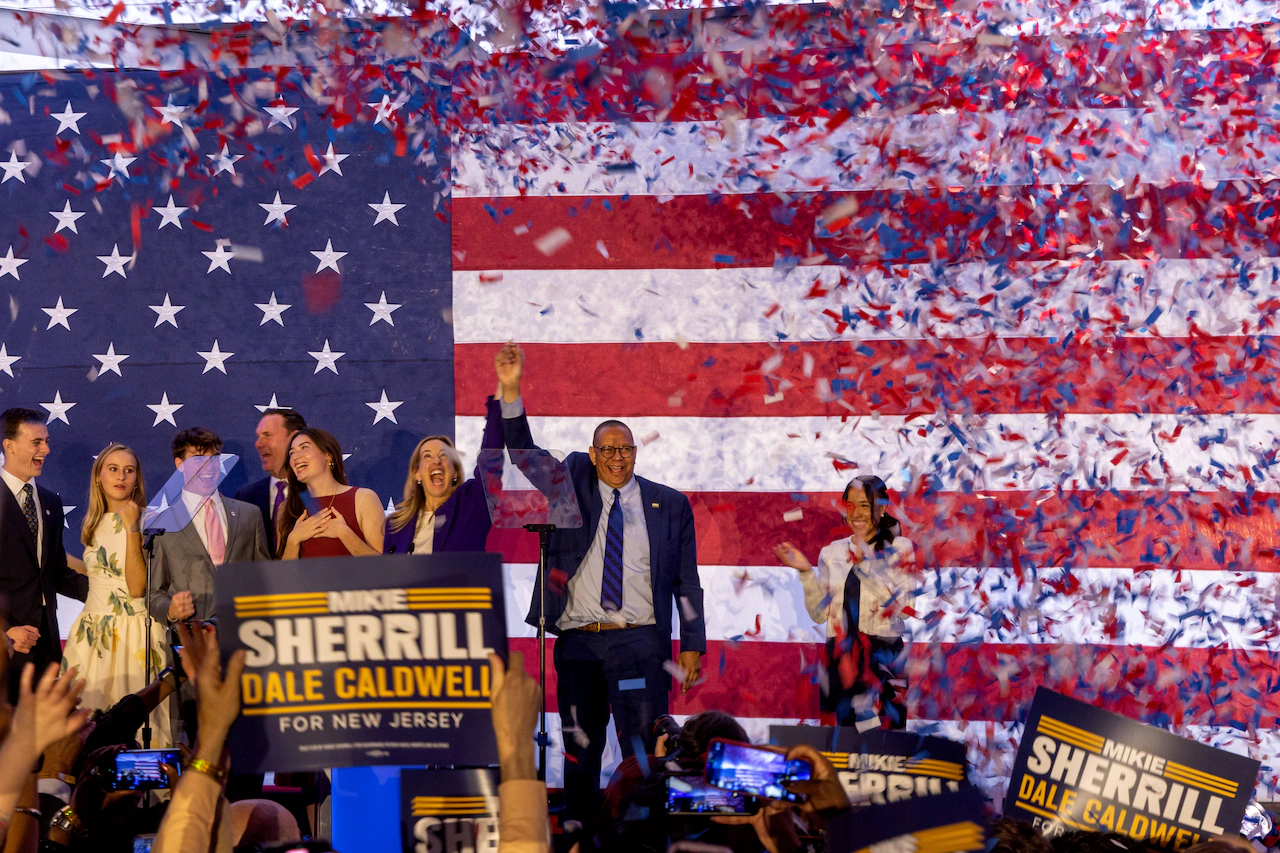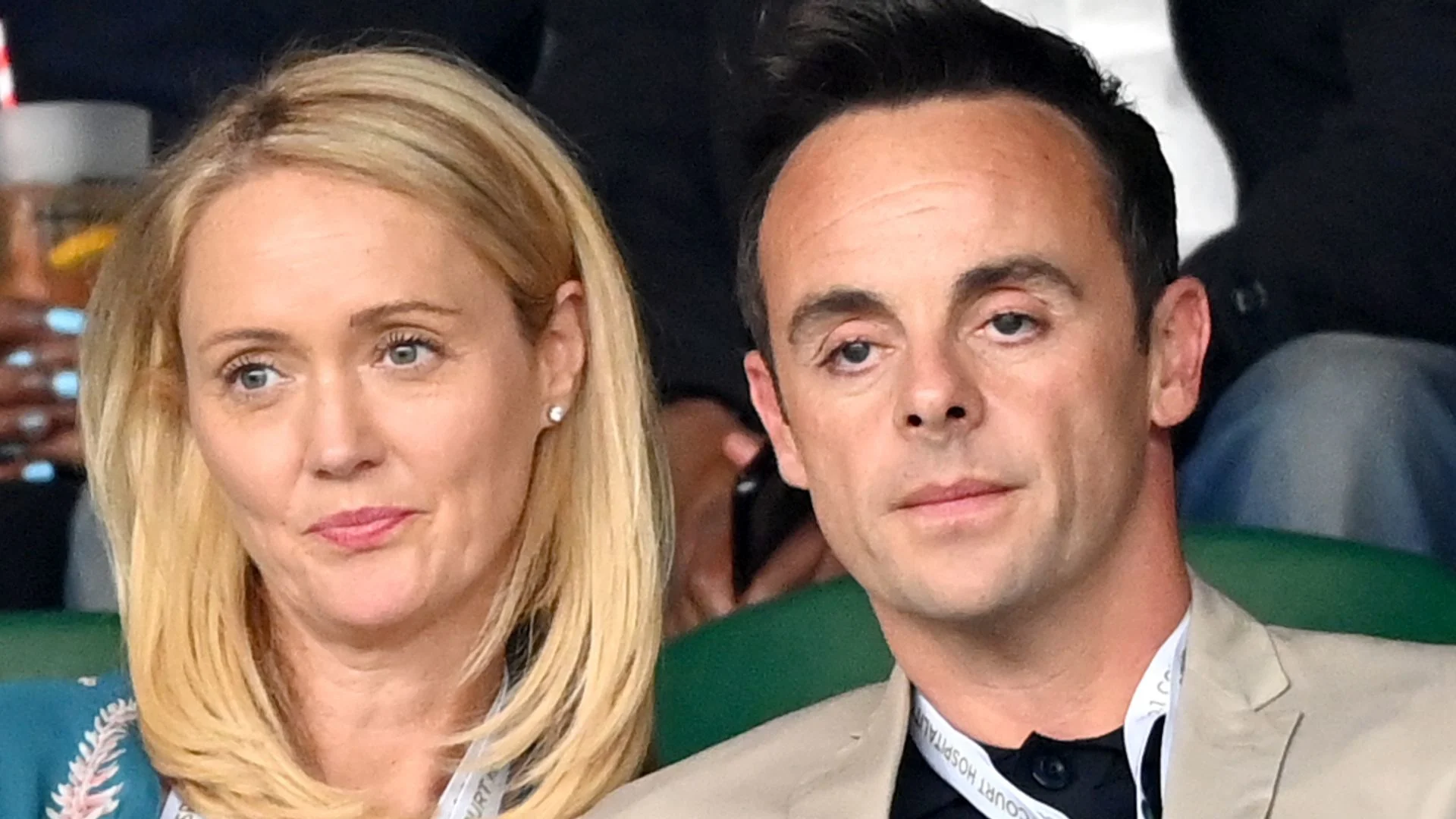Copyright NJ.com

Julie Roginsky, a Democrat, and Mike DuHaime, a Republican, are consultants who have worked on opposite teams for their entire careers yet have remained friends. Here, they discuss the week’s political events in New Jersey and across the country with Star-Ledger editor Enrique Lavín. Q: Most political observers agreed Donald Trump and affordability concerns were the two main factors why Democrat Mikie Sherrill will be New Jersey’s next governor — winning decisively over Republican Jack Ciatarrelli. Both of you agree on that point on CNN the day after Election Day. The governor-elect described her 13-point victory as a “mandate,” outlining her first 100-day goals: Freezing utility rate hikes, regulating social media algorithms to protect children and standing up to various Trump administration policies, among others. What priorities will face the toughest political or legal resistance, and how should she navigate that? Mike: I’m not sure how she will freeze utility rates, but it is a worthy goal and very smart to push during the election and again as governor-elect. Picking when to stand up to Trump and when to work with the federal government is a difficult dance. Julie: I would agree she certainly did receive a mandate to govern and she and legislative leaders will now have a mandate to deliver. Voters are in pain and they will expect the governor-elect to make their lives tangibly better — and quickly. She will have a lot to manage — the different personalities and priorities in the Legislature, from the newly elected members who won in red districts to the progressives who won their primaries without the help of county organizations and so don’t feel the need to bend the knee to anyone. All of this will make for a very tough Legislature to corral – not just for Speaker Craig Coughlin but for Gov. Sherrill. I truly hope she surrounds herself with people who not only know all the players and how to manage them but also have no other agenda aside from her own. Q: The governor’s race was widely described as one of the nastiest in recent memory. In the spirit of “Friendly Fire,” lifelong Star-Ledger subscriber, Ken Mayers, 80, of Roseland, wants to know: “Despite the heated campaign, could Sherrill make a bold move and break this cycle of perception that the Democrats hate the Republicans and vice versa? I think that Jack is a decent person. Would he accept an appointment in her administration if she asked?” Mike: Granting a position of authority to an opponent is a nice gesture but not always easy to give, or accept as the person who lost, because the job is to execute the governor’s vision. Both just spent a year disagreeing on that vision. In an ideal world, there would be some common ground, but it’s easier said than done, on both sides. “Hey, you just told everyone I would be a terrible governor. How would you like to help me execute my agenda?” But your reader’s larger point on Jack is correct. He has dedicated much of his life to public service having served in local, county, and state office, and running for governor three times. I doubt he is done serving this state. This suggestion reminds me a of great political story. Shortly after defeating Bob Dole in 1996, Bill Clinton awarded him the Presidential Medal of Freedom to honor him for his lifetime of service. After receiving the medal from Clinton, Bob Dole, always in good humor, quipped “I had a dream that I would be here this week, receiving something from the president, but I thought it would be the front door key.” Julie: Yeah, I think we are way past the Team of Rivals mentality that marked Abraham Lincoln’s White House tenure. It would be a nice gesture if she offered him a post but I doubt that he would accept — and I don’t know that it would get her much for doing it. It’s not like legislative Republicans will suddenly fall in line with her agenda if she were to appoint him as the Commissioner of Agriculture or something. Q: Both of you have voiced concerns about flawed polling. This election proved your point, yet again. Mike told NJ Advance Media reporter Ted Sherman that pollsters weren’t looking closely enough at undecided voters, many of them women, Black and Latino, who more often show up more for Democrats. Regardless, you also believed this was going to be a tighter race than it was. What surprised you most about New Jersey’s electorate? Mike: For those who didn’t see the Sherman story, I am not sure that the polls were wrong so much as the analysis. When I looked at the undecided voters in these polls, the vast majority of the undecided voters looked like they were going to break to Sherrill. So a poll that said it was close was really not if you took the time to look a little deeper. As examples, I saw more Democrats were undecided than Republicans; more women were undecided than men; more Black and Hispanic voters were undecided than white voters. Those undecided voters were always going to break Sherrill’s way. There was some wishful thinking among some Republicans that it showed weakness for Sherrill. But all it showed was late-deciders, who were always likely to vote Democratic, voted Democratic. Julie: Sometimes, it’s better to go with your gut than your head. I let my head rule the analysis this cycle, whereas my heart told me that voters would never vote for a Republican this year because they would want to stick it to Trump. A lot of us assumed that New Jersey voters had not yet totally nationalized during off-year elections. This year proved that this is no longer the case. In some ways, Mike and I have maybe been around too long and still remember when voters were able to differentiate between Washington and Trenton. I don’t know if I will be making that mistake again. Switching to the national stage, I have a specific question for each of you. Q: Mike, you mentioned (on CNN) that Sherrill’s centrist positioning was key to her win in a blue state. Do you think national Democrats should adopt a similar strategy in swing states, or does that risk alienating the progressive base? Mike: Yes they should. Democrats lose in blue and purple states when they lose their way on the economy. A Democrat can still be progressive on social issues and put economics first. A Democrat can still be pro-climate and recognize we need more than just renewables to meet our energy demand and keep bills affordable. Democrats lose when they cater to the far left and win when they remember the center. Q: Julie, you emphasized the need for Democrats to deliver quickly on affordability and economic issues. What do you think is the most effective way for them to communicate those wins to voters before the 2026 midterms? Julie: Well, first they need to deliver, which is easier said than done in this economy, when so much of it is out of their hands and in the hands of a president and a party that doesn’t know or care about making life more affordable. But they also need to communicate the wins effectively. I keep pointing to Zohran Mamdani’s campaign. I have no idea whether he will be able to deliver on his promises, but I bet he is going to use the hell out of social media to tell voters about any progress he makes. The days of overly packaged, overly produced content is drawing to a close. Any candidate, whoever it is, should grab an iPhone and go to work. Q: If Sherrill resigns from the House on Jan. 20 when she’s sworn in as governor, the earliest a special primary could be held is March 31 with a general election in early June, potentially overlapping with the 2026 primary. Gov. Phil Murphy faced recent congressional vacancies that were either delayed or left unfilled for long stretches. Should the governor-elect resign sooner than January? Why or why not? Mike: There’s no good time to resign because there’s such a slim majority in the House. The governor-elect should wait until she’s in office to leave the House. Julie: I suspect she will do whatever works for Minority Leader Hakeem Jeffries. Does he need her vote later this year and in early January or will he need a Democrat to fill that seat quickly, because more important votes are coming up in March or April? I assume she will consider the needs of her caucus before making that decision. Q: Any standout candidates who have declared to fill Sherrill’s House seat you’d like us to know about? Mike: On the GOP side, watch Randolph Mayor Joe Hathaway, a young rising star in Republican politics. Julie: On the Democratic side, I love Tom Malinowski (full disclosure: I am running his super PAC). He’s experienced, he has served the state and country already and he has been fully vetted, which means that there are no embarrassing disclosures state and national Democrats will have to worry about. Q: Speaking of the 2026 midterms, how nervous are Republicans after losing multiple elections throughout the country last week, including in Virginia’s governor’s race and for New York City’s next mayor? Mike: Republicans should be very nervous. They will need to win almost every competitive race in a much worse political environment than 2024, or find success in the redistricting gambit. Or both. But that could backfire. Julie: Republicans should hit the panic button. Democrats did not just win in blue or purple states. They broke the Republican state Senate supermajority in Mississippi. They won three statewide state-level seats in Georgia – something that has not happened in 22 years. Here in New Jersey, they picked up seats in ruby red Republican districts and ousted the Republican Assembly members in Rep. Tom Kean’s hometown. Republicans now have a choice: do they actively speak out against what Trump is doing or do they double down? I know what I would tell them to do but they live in fear of mean Trump tweets and MAGA primaries, so they will likely not listen. Q: The two biggest stories out of Washington last week was President Trump’s push to end the filibuster in the Senate with a handful of Republicans signing on. What’s the worst that can happen if the 60-vote threshold ends? Mike: The filibuster has been weakened by both parties over the last 15 years. It is designed that way so the senate doesn’t become simple majority like the House, forcing some compromise. The worst that happens is every issue becomes one party rule with zero compromise ever. Julie: I hate the filibuster and always have. It’s past time for it to go away. If you have to force compromise than you’ve already lost the plot anyway. At this point, it’s just kabuki theater anyway. Q: Several U.S. Supreme Court conservative justices have joined the liberal minority in questioning Trump’s authority to impose tariffs, arguing his justification may be unconstitutional. If the Court limits this power, how would that impact Trump’s core economic agenda? How would it impact everyday Americans? Mike: Tariffs going away, or at least the ability to levy them without Congress, would be a good thing. The threats of tariffs on a whim are bad for long term economic stability or predictability for companies. Tariffs going away (or back to the correct process) could be a stimulant to the economy to lower prices for consumers. Julie: The Supreme Court might actually save Trump from himself. Tariffs are causing massive pain for Americans, including many members of the MAGA base. If the court were to limit Trump’s authority on this issue – and, crucially, if he were to listen and obey their mandate – it would mean lower prices for consumers. She's a Dem. He's GOP. And they're friends Shutdown drags on as Trump tests limits of executive power. Will he run in 2028? | Friendly Fire Early voting surge puts affordability at center of N.J. governor’s race | Friendly Fire A test for N.J. voters as Trump derails the Gateway tunnel project | Friendly Fire



